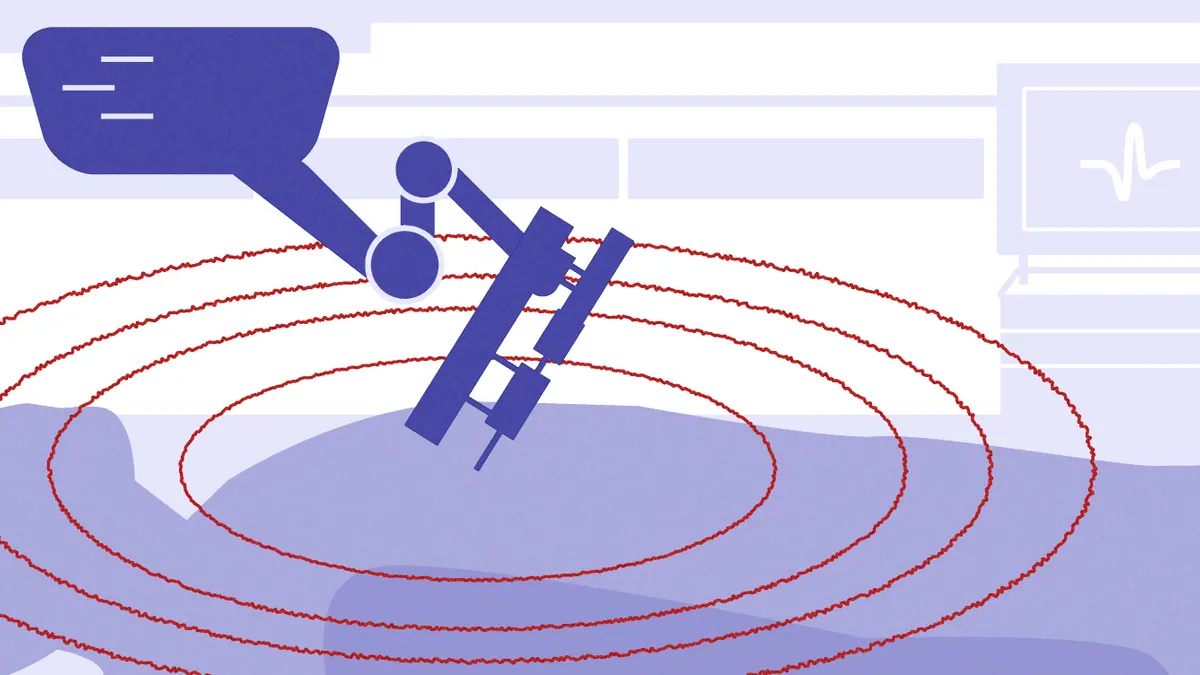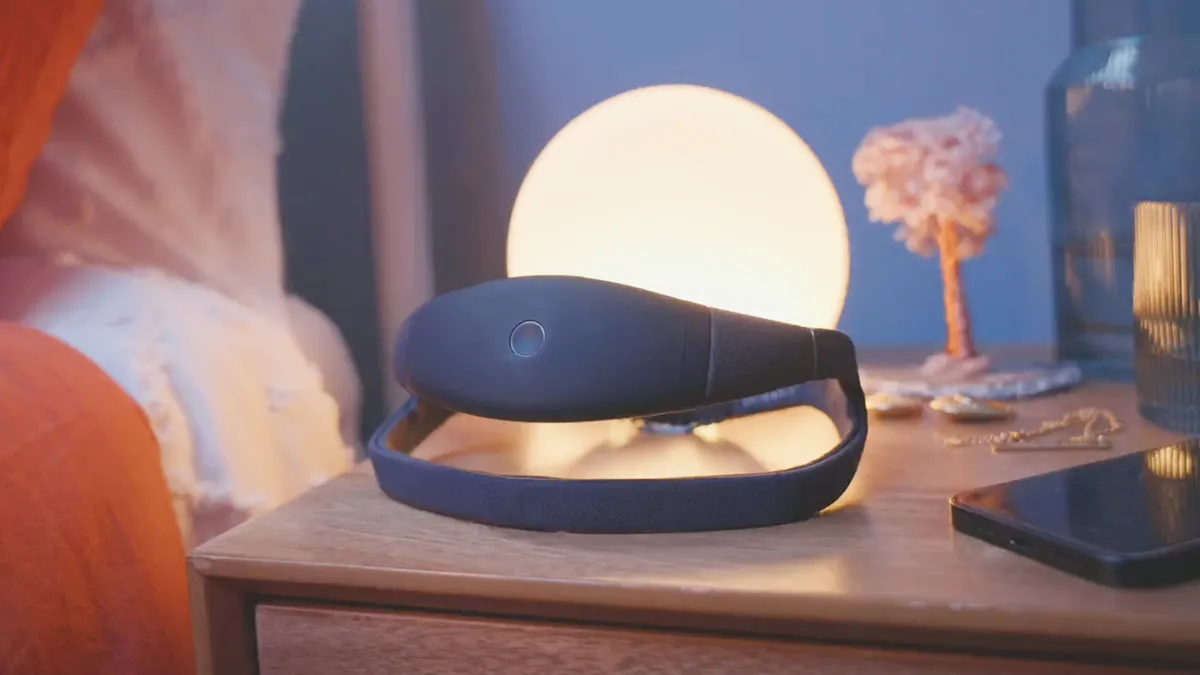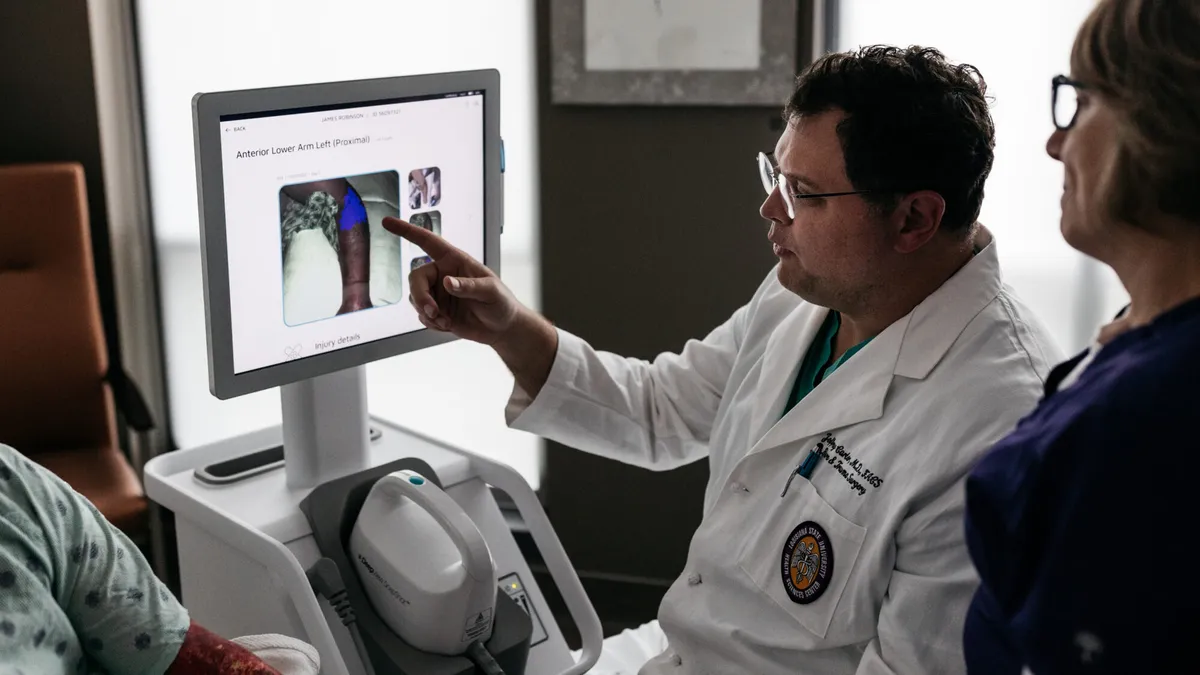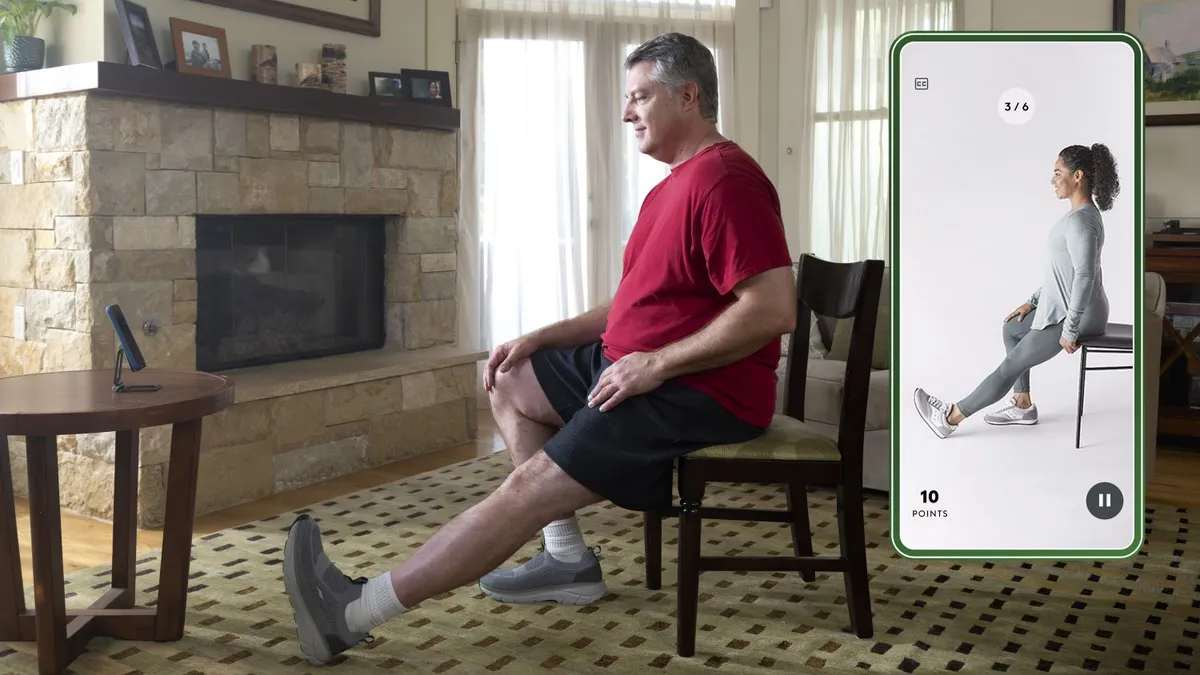As Rush University Medical Center prepares to unveil preliminary results from the first hospital 5G network in a matter of months, health systems are in limbo, waiting to see which way the wind blows on the technology before taking any major strides for adoption.
AT&T's January announcement that it was bringing 5G coverage to Rush was one of the first concrete forays of the tech into the healthcare space. While experts predict little industry-wide change anytime soon, potential benefits include increased use of telemedicine, firmer patient control over personal health information, streamlined hospital communications and lower costs.
"If you don’t have a reliable network that takes in information in lickety-split time, how are you going to do healthcare?" Shafiq Rab, SVP and CIO at Rush, told Healthcare Dive.
Telecom experts say 5G will be able to handle 1,000 times more traffic and be up to 10 times faster than today's 4G LTE networks. That's equivalent to downloading an HD movie onto a cell phone in less than a second.
Verizon, T-Mobile and Sprint didn't respond to requests for comment on plans for 5G expansion in hospitals, but all three (plus AT&T) are taking major strides as the global race to ramp up 5G. Verizon's service is currently available in four commercial markets, while T-Mobile plans to launch its network in the second half of 2019 and expand it nationwide by the end of 2020. Sprint's 5G network will switch on in May in four cities before growing to blanket five more in the first half of this year.
AT&T is furthest along geographically, with 5GE (coverage in the interim space between 4 and 5G) spanning 12 cities across the U.S. The Fortune 10 telecommunications giant plans to add seven additional cities during the first half of this year alone.
Health systems interested, but aloof
"We are very excited about the potential of 5G within and across our many facilities and capabilities," Intermountain CIO Marc Probst told Healthcare Dive, noting that it's still uncertain when exactly 5G capabilities will be established enough to support the health system's needs. "We do believe over time 5G will be a game changer for us," he said.
Mayo Clinic told Healthcare Dive it is also tracking developments within the cellular carrier industry, but 5G installation isn't "in the immediate plan," a spokesperson said. "It is hard to say for sure whether or not we'll implement it in a couple of years."
Most big health systems have been mum on a commitment to 5G. Multiple chains including Community Health Systems, Ascension and Dignity declined to comment, citing uncertainty about the tech among other reasons.
"The biggest issue that we're having is that not a lot of people understand what 5G is and how it works," AT&T's vice president for global business in healthcare Maria Lensing told Healthcare Dive. "Any hospital should just at the very least understand, what does it mean, what is 5G, what is it going to do and what are the use cases that will affect my hospital environment."
That doesn't mean there's no interest, however. As 5G grows to blanket the nation, increasing numbers of retail clinics, physician's offices, hospitals and other provider facilities will fall under its umbrella. AT&T is working on expanding its hospital test program beyond Rush, Lensing said.
"We are in conversations with other hospitals," Lensing said. "We are actively talking with many of them — I should say several — that are in the midst of signing the contracts for the trial."
What could the costs be?
The U.S. wireless industry is expected to invest $275 billion in less than a decade to deploy the 5G networks to support these new use cases, according to Accenture. Hospitals may have to belly up to the bar as well. Though the telecommunications companies own the small cell boxes and will capitalize on the hospital using their cellular service, that doesn't necessarily mean they pay for 5G installation.
"It depends on what the hospital and AT&T agree," Lensing said. "Some hospitals are willing to pay for something. Most hospitals, actually, are willing to invest."
Though AT&T wouldn’t speak to any financial specifics on the Rush installation, with a spokesperson noting price "varies from project to project," Rush's Rab told Healthcare Dive it cost the medical center roughly half a million dollars for one building.
But 5G will save providers money over time, Rab said. It costs $1,200 to $2,000 for each cable to connect computers to the network, which can add up to $1 million per building. Installing 5G cuts that price tag in half.
Though 5G small cell installation is a significant upfront investment, it could save hospitals money over time in a tough financial environment. Savings could be especially important for smaller or rural facilities.
"A big hospital — all the fiber comes to it. But for a rinky-dink hospital or clinic, I can't spend millions of dollars running lines, but we have to support the phones and computers. What 5G will do is become the primary way they get coverage," Rab said.
Return on investment
5G has the lowest latency of any cellular network ever, meaning it takes almost no time for the network to respond. This means increased reliability for time-sensitive health activities or requests, Rab said, and 5G's increased capacity allows it to process more data more quickly. Wireless networks will be able to support more medical devices connected to the Internet of Things — including devices that can connect patients and caregivers.
"There are some potentially enormous benefits of using 5G in health," broadband nonprofit SHLB Coalition executive director John Windhausen told Healthcare Dive, especially real-time monitoring of patient health and ambulatory care.
Some potential use cases Rab teased include surgeons operating remotely using robots in real time, or patients requesting and receiving copies of their MRI scans in the blink of an eye. Autonomous reality could be used to train medical students, and parents could take their babies home from the NICU while experts continue to monitor their health around the clock.
More generally, 5G could foster in-house mobility and communication, unchaining doctors from their desktop computers and nurses from their stations, proponents say.
The dense clusters of small cells, miniature cell towers needed for 5G connection that are about the size of a shoe box, could make 5G networks more resilient to natural disasters, meaning more of a hospital's functionality would be preserved during severe weather events, according to the Brookings Institution.
If that sounds futuristic, that's because it is. Currently, Rush is only testing out the tech in what Lensing calls "peripheral" or "adjacent" areas of clinical applications that don't have direct implications on patient health, such as communication between a nurse and doctor.
All types of hospitals (rural, urban, teaching, specialty, etc.) can benefit, according to Lensing. "The hospitals run the gamut," she said, noting one commonality between interested providers is that they have a C-suite technology executive who wants to digitize their interactions with patients and the patient experience.
Is it safe?
But with 5G expansion comes heightened health concerns, with some health advocates worried about beaming low-millimeter wave radiation all around the country's sickest and most vulnerable citizens.
Some health advocates are concerned about the lack of concrete research into 5G's radioactive effect — especially when placed so close to patients.
A 10-year, $30 million National Toxicology Program study found evidence that male rats exposed to high levels of cellular radiation developed cancerous heart and brain tumors, though researchers clarified it is hard to extrapolate human repercussions from the results.
5G differs from the 2G and 3G radiofrequency radiation used in the study. It depends on the deployment of dense wireless networks and hundreds of thousands of new small cells, meaning there will be more energy traveling through the high-frequency spectrum through the air, headed toward smaller transmitters in the home, workplace and, now, the hospital.
"5G is an emerging technology that hasn't really been defined yet. From what we currently understand, it likely differs dramatically from what we studied," Michael Wyde, lead toxicologist on the NTP study, said.
5G broadcasts on gigahertz millimeter wave bands, a section of the spectrum that has never been used before for cellular communication. These tiny, high-frequency waves bounce off buildings (prompting the use of small cells to get around this issue) but tend to be absorbed by natural things like plants, rain and the outer layer of human skin, experts say.
Potential skin, eye, systemic metabolic signaling through skin sensors, negative heat and cancerous effects are concerning, according to doctor group Physicians for Safe Technology, although there's little-to-no evidence (and little-to-no research) about the detrimental effects of radiofrequency on human health.
"We are flying blindly here on health and safety," Sen. Richard Blumenthal, R-Conn., said at a Senate Commerce, Science and Transportation Committee hearing in February after industry representatives noted that, to their knowledge, there are no industry-backed studies right now.
"The standards for 5G have not been developed yet," SHLB Coalition's Windhausen told Healthcare Dive, though he noted there hasn't been any hard evidence cellular radiation causes negative health benefits. "If you're looking at the power level we're already being bombarded with huge amounts. There hasn't been any proof that TV signals have caused any harm."
Most federal and industry officials largely discount fears of negative health effects, arguing radiation exposure is minimal if it exists at all and that there's been little change in incidences of brain cancer in recent years despite the skyrocketing adaptation of cell phones. And the mainstream scientific community has found no causal link between radiofrequency fields below the Federal Communications Commission exposure limits and adverse health effects, according to the FDA and the World Health Organization.
Both Rab and Lensing agreed on the need for future research on 5G specifically. In Lensing's opinion, 5G expansion shouldn't have markedly different effects on America's health than 4G, 3G or 2G cellular adoption have in the past, though experts still aren't entirely sure about long-term ramifications due to the dearth of research.
"Is 4G radiation today going to be less powerful or more powerful than 5G radiation tomorrow? I couldn't find one study on 4G radiation," Lensing said. "Could you?"




















